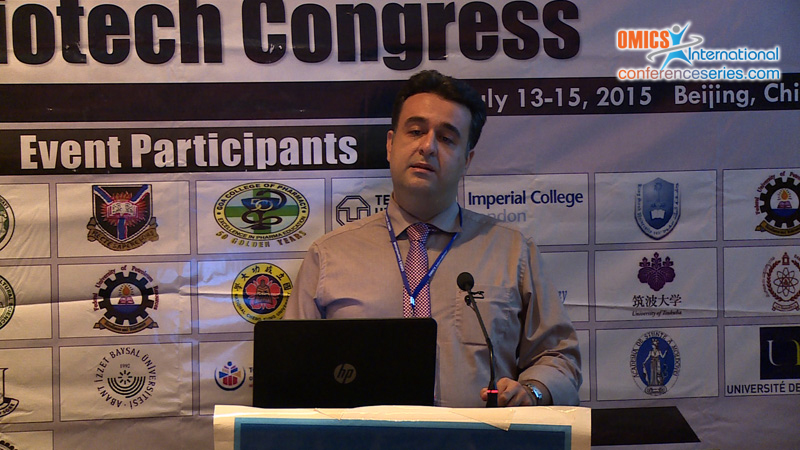
Ardeshir Hesampour
Islamic Azad University, Iran
Title: Improvement of phytase thermostability and catalytic efficiency by site-directed mutagenesis for industrial application
Biography
Biography: Ardeshir Hesampour
Abstract
The main form of phosphorous in animal feed is phytate which cannot be utilized by simple stomached animals. Since phytase (PhyA) has been efficiently catalyze the hydrolysis of phytate to phosphate, therefore can be used as an animal supplement to provide animal nutrient requirement phosphate and eliminate unutilized feed phosphate environmental pollution. Owning to animal feed is commonly pelleted and at 70 to 90°C; hence, phytase with sufficiently high thermal stability is desirable. Based on the crystal structure of PhyA and bioinformatics analyses, we prepared 12 single and multiple mutants at S205N, S206A, T314S, Q315R, V62N and T151A by site directed mutagenesis in order to improve thermostabilty of phytase through strengthen the hydrogen bounding and ionic interactions. Mutated constructs were expressed in Pichia pastoris. Thermostabilty of six mutants were improved and among of them, the triple-site PhyA P9 (T314S Q315R V62N) and the 5-site PhyA P12 (S205N S206A T151A T314S Q315R) showed the highest heat stability (P<0.05) with 24 and 22.6% greater retention in compare to the wild-type PhyA after being heated at 80°C for 10 min and in parallel height Tm stability. The Km value of the improved PhyA P9 and PhyA P12 mutated enzymes for sodium phytate were 35 and 20% lower (P<0.05) with respect to the wild-type. In conclusion, it is feasible to simultaneously improve thermostabilty and catalytic efficiency of phytase to be used as an animal feed supplement.
Speaker Presentations
Speaker PPTs Click Here

